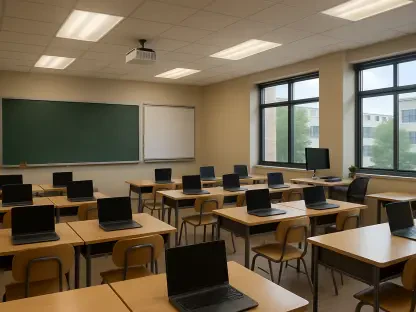Universities across the United States face an evolving landscape shaped by federal oversight, with discussions intensifying around academic freedom, political autonomy, and ethical standards. In light of recent federal actions, educational experts, policymakers, and analysts provide diverse perspectives on the implications for higher education institutions. This roundup gathers insights on the importance of maintaining institutional sovereignty amidst growing governmental intervention.
Contextualizing Federal Actions in Higher Education
Federal scrutiny of universities is not a new phenomenon, rooted in a historical relationship marked by fluctuating oversight levels. Current developments, however, have magnified its significance, drawing attention to the impact on academic autonomy and potential repercussions for educational institutions. Experts emphasize the need to understand these dynamics through legal, ethical, and operational lenses, particularly considering ongoing legal disputes and institutional challenges.
Emerging Conflicts in the Academic Sphere
Columbia University: Financial and Ethical Implications
Columbia University’s settlement is a focal point in the discourse, raising questions on financial arrangements and ethical considerations within the academic realm. Analysts dissect the complexities of this agreement, exploring potential pitfalls and its impact on the concept of academic freedom. Concerns arise over federal tactics that might undermine institutional integrity, challenged by expert opinions weighing the benefits and risks of such settlements.
Department of Justice’s Actions: George Mason University Case
George Mason University’s diversity initiatives have garnered federal attention, sparking discussions on industry-wide practices concerning diversity and admissions standards. The Department of Justice’s investigations into potential discrimination are met with varying opinions, highlighting the risks and rewards universities face under similar scrutiny. Industry data supports these deliberations, offering insights into how institutions can navigate such pressures.
Addressing Antisemitism on Campus
The federal focus on campus antisemitism introduces a complex dilemma as investigations attempt to reconcile allegations with cultural and institutional norms. Regional and institutional comparisons reveal varied approaches to managing antisemitic concerns, challenging assumptions about its impact on campus culture. Media narratives play a pivotal role in shaping perceptions, prompting critical examinations of antisemitism’s influence within academic environments.
Divergent Approaches: Tennessee and Federal Interventions
A comparison of Tennessee’s proactive admissions strategy with federal scrutiny illustrates diverse educational philosophies. Analysts speculate on the long-term implications, suggesting shifts in national policymaking that could redefine higher education dynamics. Tennessee’s strategy underscores the potential for alternative approaches, offering a contrast to federal interventions and sparking discussions on effective access to education.
Key Lessons and Strategies for Resilience
Universities face significant challenges due to federal pressures, necessitating strategic responses to uphold autonomy. Academic leaders are advised to implement best practices to navigate these complexities, ensuring that institutional integrity and independence remain intact. Insights from current scenarios emphasize the importance of resilience, as universities adapt to an evolving regulatory environment.
The Future of Higher Education under Federal Scrutiny
Looking ahead, the balance between maintaining educational independence and accommodating federal regulations presents ongoing challenges. Future developments may see institutions exploring innovative solutions to preserve their values while navigating governmental oversight. Readers are encouraged to consider further implications, considering insights from diverse perspectives that shape the discourse around higher education in today’s climate.









